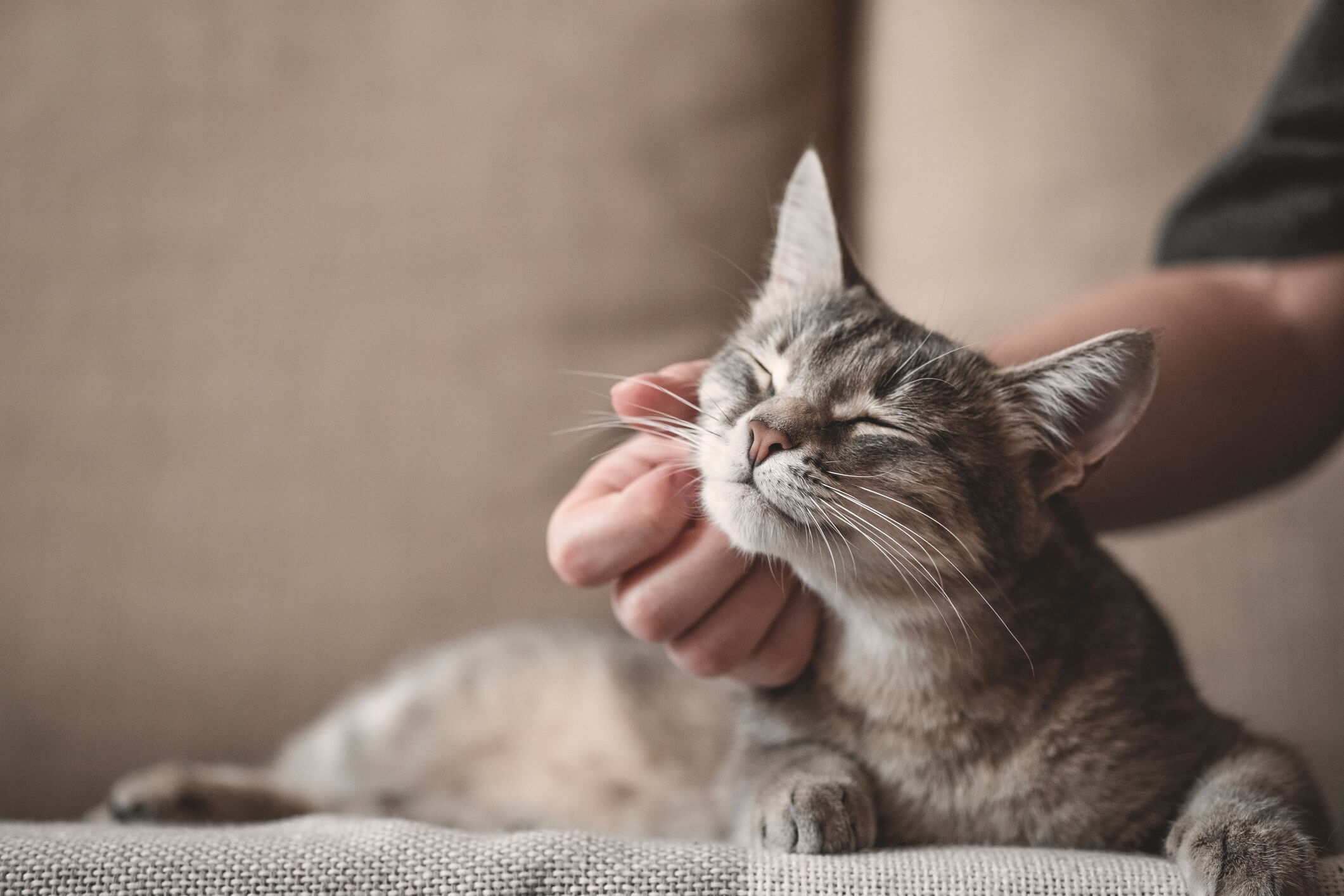
How Stress Is Straining Your Cat's Health
Pet parents underestimate how damaging stress can be on their cats. One-time incidents are inevitable, like dropping silverware on the floor. However, be careful not to overlook consistent stressors like a new home or other household pets.
Stress may not seem like a big deal, but over time, it can negatively impact your cat’s wellbeing. Reduce your cat’s stress to protect them from the following harmful consequences.
Negative health effects of stress
It’s no fun seeing your kitty in distress. The constant hiding, hissing and yowling would worry any pet parent. But it doesn’t end there—stress can have lasting effects on a cat’s physical health. Here’s what could happen if their stress gets out of hand.
- Unhealthy weight: A common symptom among stressed cats is an appetite change. When a cat is stressed, they might eat more or less than usual. Excessive eating is bad for cats because this behavior leads to obesity and all the diseases associated with it. On the other hand, appetite loss or avoiding their food bowl can cause malnutrition, low energy and dangerous weight loss.
- Skin and coat problems: Cats can become stressed when their living space doesn’t provide enough entertainment. They might groom themselves out of sheer boredom, which can result in bald patches, bite marks and skin irritation. Stressed cats might also groom as a way to self-soothe. In severe cases, excessive grooming may lead to secondary infections. While grooming is normal in cats, a sudden increase in this behavior can trigger more health problems.
- Digestive upset: Stress can lead to more frequent symptoms of indigestion. Cats placed under huge amounts of stress often experience vomiting, diarrhea and constipation. Digestive upset is more than an inconvenient mess for you to clean up. Frequent vomiting and diarrhea mean too much water is leaving the cat’s body. If these symptoms persist, the cat might become dehydrated. Constipation is another serious problem, because going too long without a bowel movement can create a life-threatening intestinal blockage.
- Weakened immune system: Stress takes its toll on the immune system. Stressed out kitties get sick more often because the constant anxiety saps their energy. This weakens the body’s defenses against bacterial and viral infections. Minor illnesses could be harder to fight off because stress is dampening the immune response. If your cat gets sick all the time, there’s a good chance stress is the underlying problem.

How to reduce your cat’s stress
Many things can trigger stress in cats. How you go about reducing their stress depends on what’s causing it in the first place. If the source of stress is unclear, here are a few things you can try:
- Create safe hiding spots: Cats are elusive creatures, especially when company is over. A cat will become stressed if they don’t have a place to escape from strangers. Before guests visit your home, make sure the cat has easy access to a quiet corner far away from the main living area. Place bedding, a litter box and food bowls near this hiding spot. Also, kindly request visitors to give your kitty some space.
- Keep their routine: Big changes like moving and new family members are major sources of stress for cats. No matter what the change is, help your kitty adjust by sticking with their usual routine. Feed them, clean litter boxes and schedule play time at consistent intervals each day. Routines create predictable patterns and demonstrate that many aspects of their environment are still safe.
- Provide resources for all cats: Cats are often stressed when they have to share territory with several others. If you own two or more cats, they might be fighting over resources like food, toys, bedding and cat trees. As a general rule, buy one resource for each cat plus one extra. This will ensure there are enough cat beds and litter boxes to go around. It’s equally important to separate resources throughout the home and keep them away from noisy areas to reduce competition.
- Build a stimulating environment: Cats get stressed when they have no way to entertain themselves. They need high perches and cat trees that encourage climbing, jumping and hiding. Cats also require daily play time that satisfies their natural hunting instincts. Catnip mice and motion-sensor prey can keep kitties occupied while you’re not home.
Every cat will experience stress at some point in their life. A loud motorcycle might rev past your house, or neighbors might set off the occasional firework. You can’t prevent these situations, but you can detect ever-present stressors chipping away at your kitty’s health. It’s never too late to take away some of your cat’s stress!


